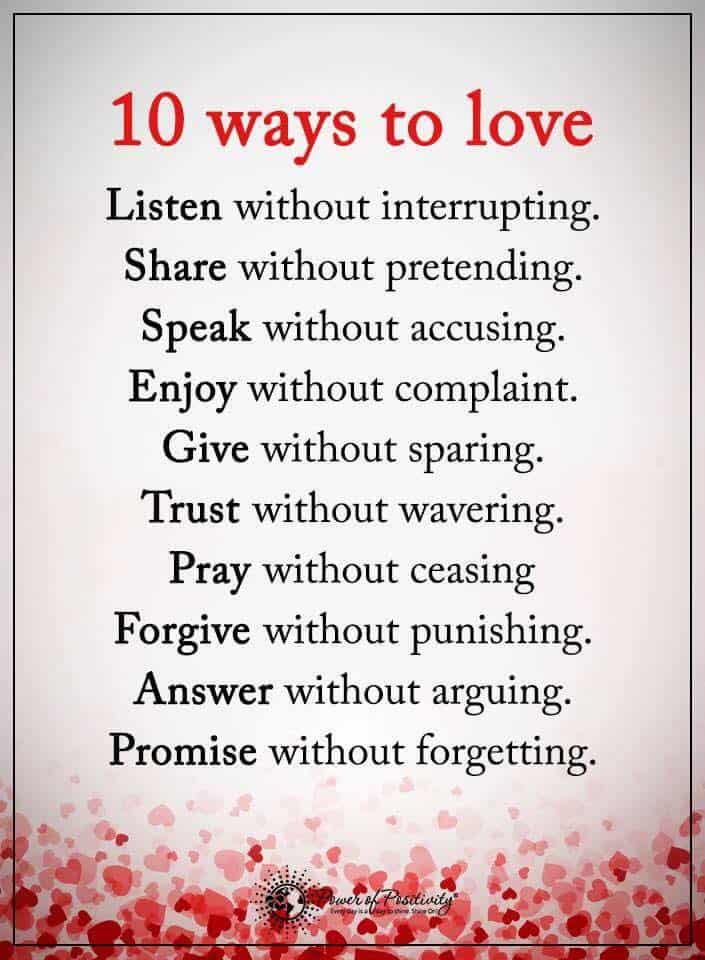Know these key signs of insecurity.
In human emotions, insecurity often lurks hidden, subtly influencing actions, reactions, and interactions in ways that can be surprisingly profound. Imagine navigating through a relationship with an insecure person.
In this scenario, every word spoken and every action taken is silently, yet powerfully, shadowed by a persistent fear of not being enough. Insecurity, while universally experienced to some degree, can weave a complex web that entangles individuals in a persistent struggle with self-doubt and apprehension.
Recognizing the signs of insecurity is not merely an exercise in psychological analysis. Instead, it is a step toward emotional awareness, nurturing healthy relationships, and positive living.
This article will reveal ten unmistakable signs that reveal an insecure person, providing you with the insights to understand an insecure person with empathy and understanding.
6 Things That Cause Someone to Become an Insecure Person
Before we look into the behaviors that reveal an insecure person, let’s look at what causes it.
1. Childhood Experiences and Parenting Styles
Early life experiences, particularly those involving parental incompetence, may shape an individual’s self-perception and emotional stability. Children who experience neglect criticism or whose emotional needs are consistently unmet may develop insecurities in adulthood.
2. Past Trauma or Rejection
Experiences of trauma, rejection, or failure can leave lasting imprints on an individual’s self-esteem and confidence. The fear of reliving such painful moments can foster persistent insecurity. It can also lead to apprehension in various aspects of life.
3. Social Pressure and Comparison
The pervasive culture of comparison, amplified by social media and societal expectations, can fuel feelings of inadequacy and insecurity. Constantly measuring oneself against others’ achievements, appearances, or lifestyles can erode self-worth and create self-doubt.
4. Relationship Patterns
Engaging in relationships where one consistently feels undervalued, unappreciated, or disrespected can sow insecurity. Such patterns may cause individuals to question their worth and struggle with trust in subsequent relationships.
5. Physical or Emotional Neglect
Physical or emotional neglect can lead to a chronic sense of being unworthy of attention or love. As a result, this can manifest as insecurity, where the individual constantly seeks validation and assurance from others.
6. Chronic Illness or Physical Limitations
Living with chronic illness or physical limitations can sometimes impact an individual’s perception of self and place in society. The ongoing struggle and potential dependency may foster insecurity regarding one’s abilities and value.
Understanding what causes an insecure person is crucial in developing empathy. It also helps to provide supportive environments where individuals can explore and address these underlying issues. We foster environments that promote emotional healing, self-acceptance, and healthy relationships by recognizing and acknowledging these factors.
10 Primary Signs That Reveal an Insecure Person
Watch for these behaviors in yourself or someone you love. They are very telling.
1. An Insecure Person Has a Constant Need for Reassurance
In relationships and interpersonal interactions, a constant need for reassurance is a prominent sign of insecurity. An insecure individual may frequently seek validation and affirmation from others. This insecure attachment style often requires persistent assurance of their worth, capabilities, and desirability.
This perpetual quest for approval may stem from a deep-seated fear of not being good enough, compelling them to seek external validation to quell their internal anxieties.
It is entirely human to seek reassurance occasionally. Still, an ongoing need can strain relationships and hinder the development of self-reliance and personal growth. Understanding and addressing this need without perpetuating dependency is crucial to healthy, mutually supportive relationships.
2. Overly Sensitive to Criticism
Navigating through the delicate corridors of constructive criticism can be particularly challenging for insecure individuals. A heightened sensitivity to criticism, even when well-intended and constructive, is often rooted in an internal narrative that interprets feedback as a direct affront to their worth or abilities. This vulnerability to critique may manifest as defensiveness, anger, or withdrawal.
As a result, it stifles opportunities for growth, development, and healthy relationships. It is imperative to recognize that the resistance to criticism is often less about the feedback itself and more about the perceived threat to their self-esteem. Engaging with such sensitivity requires empathy and clear communication. It also encourages an environment where feedback is a tool for growth rather than a weapon of judgment.
3. Social Withdrawal May Reveal an Insecure Person
Today’s social landscapes can become a daunting expedition for an insecure individual. Social withdrawal means deliberately avoiding social interactions and activities. That fear often stems from a fear of judgment, rejection, or a perceived inability to measure up to others.
The cocoon of isolation provides perceived safety. That’s because it shields one from potential criticism or negative feedback. However, this self-imposed isolation deprives one of enriching social experiences and perpetuates a cycle of loneliness and further insecurity. Nurturing an environment encouraging gradual social engagement without imposing pressure or judgment becomes critical. That’s because it helps insecure individuals to step out of their shells and engage with the world around them.
4. Excessive Jealousy May Appear in an Insecure Person
Navigating jealousy can be complex and challenging. Excessive jealousy often comes from insecurity. Thus, it manifests as a persistent fear of loss, competition, or the perceived threat of being replaced.
In relationships, this may translate into possessive behaviors, constant suspicion, and an insatiable need for assurance of loyalty and exclusivity. It is crucial to understand that beneath these tumultuous emotions lies a deep-seated fear of inadequacy and unworthiness.
Therefore, addressing excessive jealousy involves managing the manifestations of these emotions and understanding the underlying insecurities that fuel them. It becomes possible to heal jealousy through open communication, reassurance, and professional help. It can also replace jealousy with trust and security.
5. Low Self-Esteem May Mean Insecurity
A pervasive sense of low self-esteem often casts a shadow over the lives of insecure individuals. Indeed, it may influence their perceptions, actions, and interactions.
A diminished sense of self-worth may manifest as self-deprecating behaviors or reluctance to pursue opportunities. It may also lead to a tendency to discredit their abilities and achievements.
Low self-esteem is not merely a personal hurdle; it also impacts relationships, as individuals may struggle to accept love, appreciation, and recognition, believing they are undeserving of such positive affirmations.
Addressing low self-esteem demands an environment that provides affirmation and appreciation and encourages individuals to recognize, acknowledge, and celebrate their worth and achievements.
6. Perfectionism
The pursuit of perfection can sometimes be a veiled attempt to mask insecurities. That’s because an insecure individual relentlessly strives to present an impeccable facade to the external world.
That’s because perfectionism stems from fear of judgment or criticism. It might also come from a perceived need to meet exceedingly high standards to be deemed worthy of acceptance or love. This unyielding pursuit of flawlessness can become exhausting, stifling creativity and impeding genuine self-expression.
Recognizing and addressing the insecurities that fuel perfectionism is essential, encouraging a balanced approach that values effort and authenticity over an unattainable ideal.
Fostering a space that celebrates vulnerability, embraces imperfections, and encourages genuine self-expression can halt the burdensome pursuit of perfection.
7. Fear of Abandonment May Reveal Insecurity
Abandonment fears can inform the interactions and relationships of an insecure individual. This fear usually comes from past experiences or deep-seated insecurities. But it manifests in the present as a persistent anxiety about being left, rejected, or deemed unworthy of love and attention.
It may drive behaviors such as clinging, excessive neediness or pushing people away to avoid potential hurt.
Understanding and navigating through the fear of abandonment involves:
- Recognizing its manifestations.
- Providing consistent reassurance when necessary.
- Seeking professional assistance to explore and address the underlying insecurities and experiences that fuel this fear.
8. Difficulty Trusting Others May Reveal an Insecure Person
Trust can often be a complex and challenging domain for insecure individuals. Difficulty trusting others may stem from past betrayals or disappointments. This mistrust can manifest as skepticism towards others’ intentions.
An insecure person may have doubts. Thus, they may stand vigilant guard over their emotional vulnerability.
Building trust involves creating a safe, consistent, and reliable environment where actions validate words and prioritizing emotional safety. It is a gradual process. It also takes understanding and a steadfast commitment to fostering a secure and trustworthy relational space.
9. Overcompensation
Overcompensation emerges as a nuanced sign of insecurity, where individuals mask perceived deficiencies.
That may manifest as boastfulness, a display of wealth, or exaggerated accomplishments. It may also lead to an overemphasis on physical appearance.
But beneath this veneer of confidence often lies a fear of exposure. One may dread that the true self will be insufficient or unworthy if revealed.
Addressing overcompensation involves peeling back the layers of projected self-assurance to explore and validate the underlying insecurities. But you must create an environment that welcomes and celebrates authenticity,
10. Reluctance to Share Feelings
The fortress of emotional protection that insecure individuals often construct can render them reluctant to share feelings, fears, and aspirations. This reluctance relates to a fear of vulnerability. They believe that exposing their emotions allows others to inflict hurt or judgment.
Consequently, they may appear reserved, distant, or emotionally unavailable in relationships.
Supporting this person involves validating emotions and practicing empathetic listening. It also means rewarding vulnerability with understanding and support.
5 Things to Help Reassure an Insecure Person
Here are five things to try if you care about someone with profound insecurity issues:
1. Offer Reassurance
- Regularly affirm your appreciation, love, and respect for the individual.
- Validate their feelings and experiences without judgment or dismissal.
- Ensure that your words of affirmation are genuine and consistent with your actions.
2. Reassure an Insecure Person With Active Listening
- Engage in attentive and empathetic listening when they share their thoughts and feelings.
- Avoid interrupting or immediately offering solutions unless they seek advice.
- Demonstrate understanding through verbal acknowledgments and non-verbal cues.
3. Establishing a Safe Emotional Space
- Create an environment where they feel safe to express vulnerability without fear of judgment or rejection.
- Be patient and allow them to share at their own pace.
- Ensure confidentiality and respect for their shared emotions and experiences.
4. Supporting Self-Expression
- Please encourage them to express their thoughts, feelings, and needs openly.
- Celebrate their achievements and positive qualities without resorting to comparison.
- Foster a space where their uniqueness is acknowledged and appreciated.
5. Encourage an Insecure Person to Seek Counseling or Therapy
- Encourage professional help, such as therapy or counseling, to reflect on their insecurities.
- Offer to assist them in finding suitable professional help and provide support throughout the journey.
- Respect their decision if they are not ready to get professional help and continue providing supportive companionship.
By implementing these strategies, you can provide a supportive and reassuring environment that acknowledges and validates the experiences of an insecure person. As a result, you can boost self-esteem and emotional well-being.
Final Thoughts on Understanding and Identifying an Insecure Person
Overcoming insecurity requires a delicate balance of recognition, understanding, and empathetic interaction.
Identifying the signs of an insecure person is not merely a diagnostic endeavor but a step towards fostering healthier, more secure interpersonal connections. Insecurity, often veiled beneath various behavioral manifestations, is a cry for validation, assurance, and emotional safety. But you will reap great rewards when you do the hard work required to break down the walls.

















 Community
Community

